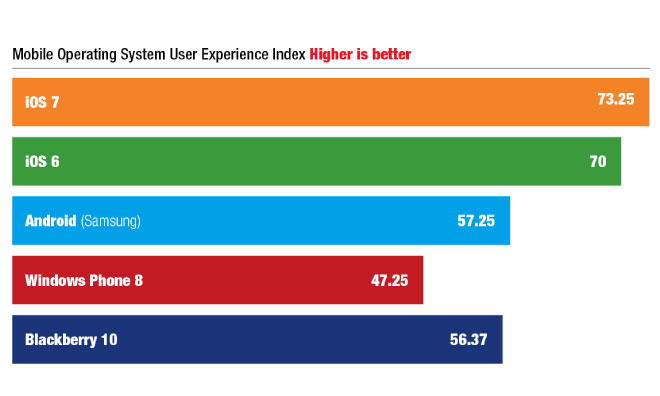
The study, conducted by technology consultants Pfeiffer Consulting, was designed to gather and compare quantitative user experience data from users of Apple’s iOS 6 and newly released iOS 7, Microsoft’s Windows Phone 8, Samsung’s variant of Android, and BlackBerry’s Blackberry 10.
According to Pfeiffer, the test methodology attempts to eliminate as many subjective variables — like brand loyalty or perception — as possible, looking only at objective "aspects that have a direct impact on the day-to-day user experience of an average, non-technical user." Pfeiffer hones in on four key points: the operating system’s cognitive load, efficiency and integration, options for customization, and user experience friction. [Link]



